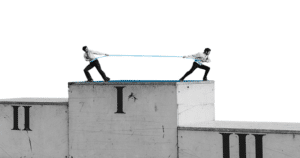Mentoring and coaching both support and are supported by a number of key business processes. In particular:
Succession planning
Mentoring, especially, assists employees in thinking about their careers and how to align their ambitions with those of the organisation. Senior managers also get to know the capabilities and aspirations of more junior colleagues and are able (within the bounds of confidentiality) to input into succession planning and talent management discussions about these individuals. Employees earmarked as potentially promotable can be supported through mentoring, both before, during and after critical career transitions.
Appraisal
Coaching provides a timely and focused way of addressing specific developmental needs identified within the appraisal process. Performance management Coaching provides a practical means of supporting employees through performance transitions (both from poor to good and from good to great). Performance management monitors performance, identifies needs for improvement, and ensures that practical support (such as training) is available when need. Coaching reinforces motivation to succeed and helps employees focus on practical, time-bound actions and on self-monitoring.
Personal development planning
Very broadly, coaching focuses on relatively short-term personal development goals; mentoring on longer-term, often career-related goals. PDPs provide the fuel for coaching and mentoring discussions and these, in turn, provide new perspectives and approaches for development planning.
Team building
Mentoring and coaching from outside the team frequently involve discussions of relationships with work colleagues. Mentees, for example, often report that they have been able to develop better rapport and ways of working with colleagues and/or their boss, as a result of mentoring conversations. Important here is developing a greater understanding of other people’s perspectives and better tactics for influencing others.
Traditional training activities
Attending a course has limited benefits, unless the employee is supported in applying what they have learned. Coaching and mentoring ensure that the learner continues to think about the learning and is able to review their attempts to put it into practice with someone more experienced. At the same time, coaching and mentoring identify new learning goals, which can be addressed by training, or other forms of learning, such as project assignments.
Communication
Mentoring between people in different parts of the business – for example, headquarters and the field – helps to build informal networks that encourage communication. Participants in coaching and mentoring programmes often form the basis for new communities of practice.
HR policy Feedback from participants in coaching and mentoring programmes often provides valuable insights into the effectiveness of HR policies, such as compensation and reward, diversity management, or support for work-life balance. Part of the mechanism here is that mentoring, in particular, creates a safe space, in which to explore such issues.
© David Clutterbuck, 2014





